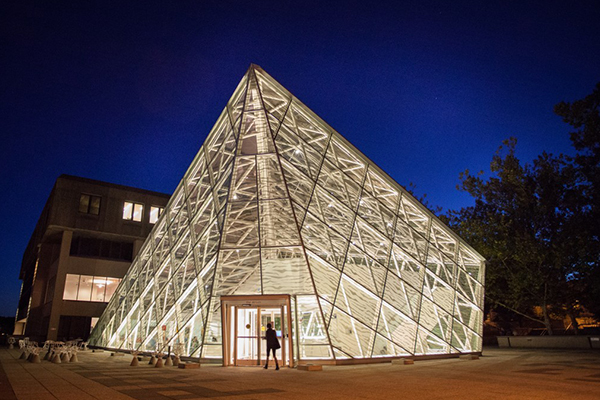Modifying our physical environment to reduce the possibility of transmission
The following message was sent by email to students and employees on July 21, 2020.
Dear Members of our Campus Community:
We write to update you on changes we have made to the on-campus physical environment to reduce the possibility of coronavirus transmission. As many of you are aware, we have already taken a number of steps, including installing hand hygiene equipment, reducing capacity in classrooms to allow adequate social distancing, placing signs to inform community members of necessary precautions, limiting large events, modifying recreational opportunities and changing class schedules. While some of these changes may be inconvenient or uncomfortable, they are necessary to protect the whole community, and we thank students, faculty and staff for their flexibility in helping to protect the health and safety of all members of our community.
The SUNY-wide COVID-19 Reopening Taskforce included a Physical Preparedness workgroup and a Heating Ventilation Air Conditioning (HVAC) subgroup with subject matter experts from several SUNY campuses. That HVAC subgroup has been conducting an extensive, ongoing review and analysis of current literature and research related to HVAC systems and COVID-19. As the research continues, the subgroup will be amending the documentation and guidance for campuses across the SUNY system.
It is recognized that modifications to HVAC systems can help in some manner. Accordingly, we have reviewed and, where feasible, made arrangements to modify ventilation systems on the New Paltz campus.
The College is currently performing preventive maintenance of all on-campus air filters, and we will be exchanging our standard commercial Minimum Efficiency Reporting Value (MERV) 8 filters with MERV 13 filters, which trap small particles more effectively. This work is expected to be completed for the start of the fall semester.
It is important to recognize that adding denser filtration is not always possible, as some systems will not operate effectively if the filters restrict too much air. The campus air handling systems have been reviewed and are being operated with higher level filtration where possible. In addition, the systems will operate for longer hours, with more outdoor air being supplied to indoor spaces. The campus will ensure that filters are changed regularly, are properly installed and not damaged. There may be areas on campus that may be warmer or colder than usual as a result of these changes. We again thank students and employees in advance for accepting these minor inconveniences and supporting our institutional effort to protect the health and safety of all members of our community.
We recognize there continues to be scientific debate as to the role of aerosols in transmission of the coronavirus. Regardless of the unknowns, it is clear that social distancing, hand washing and the consistent use of face coverings decrease transmission of COVID-19. Individual use of face covers, hand washing and maintenance of social distancing are key to our campus’s mitigation of coronavirus transmission. We ask each member of our community to protect the whole community, by carefully following policies on face covering, social distancing and other public health messaging. Our community is made stronger and safer by this shared responsibility.
John Shupe, Assistant Vice President, Facilities Management
Gary Buckman, Director, Facilities Operations

